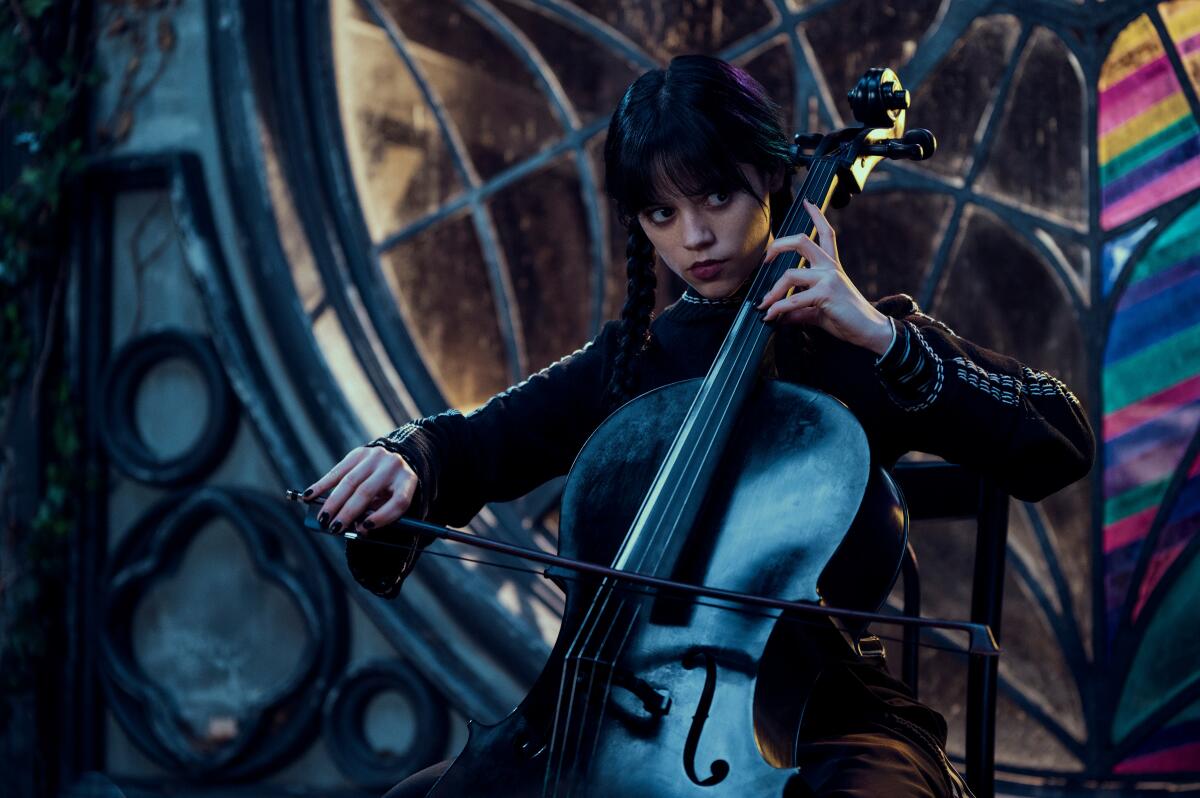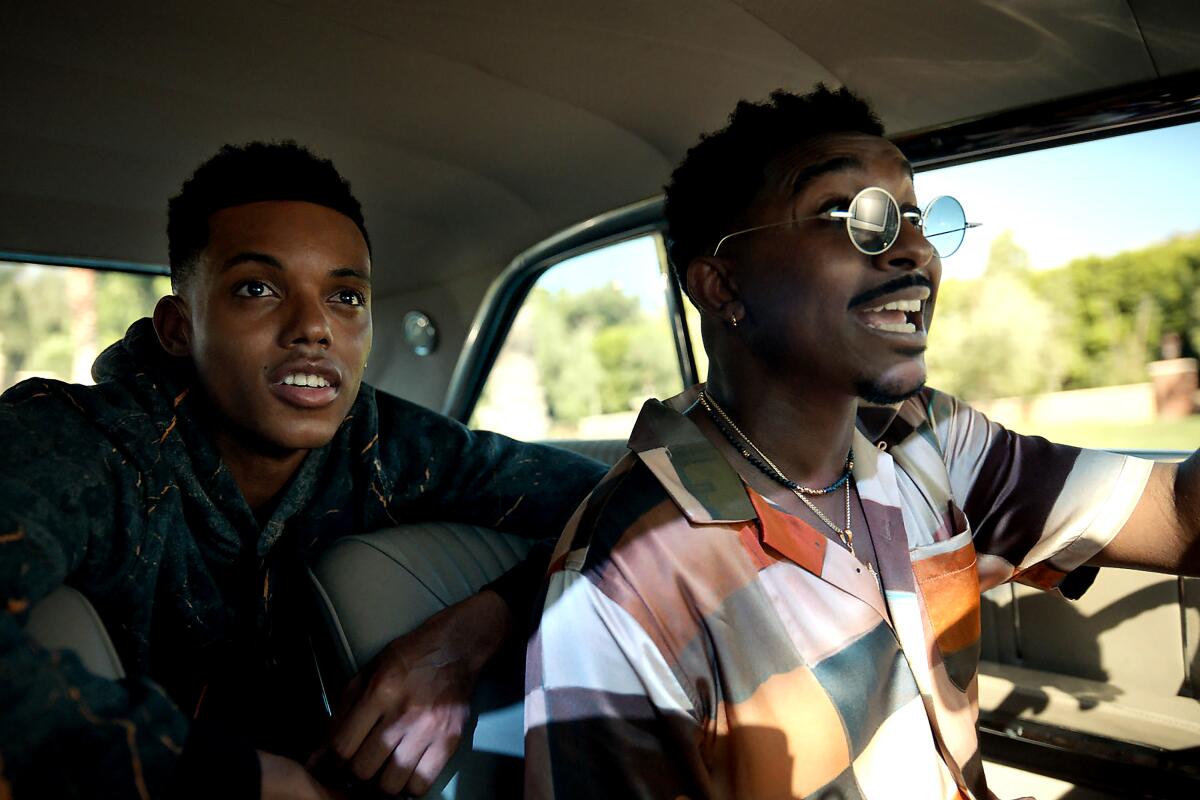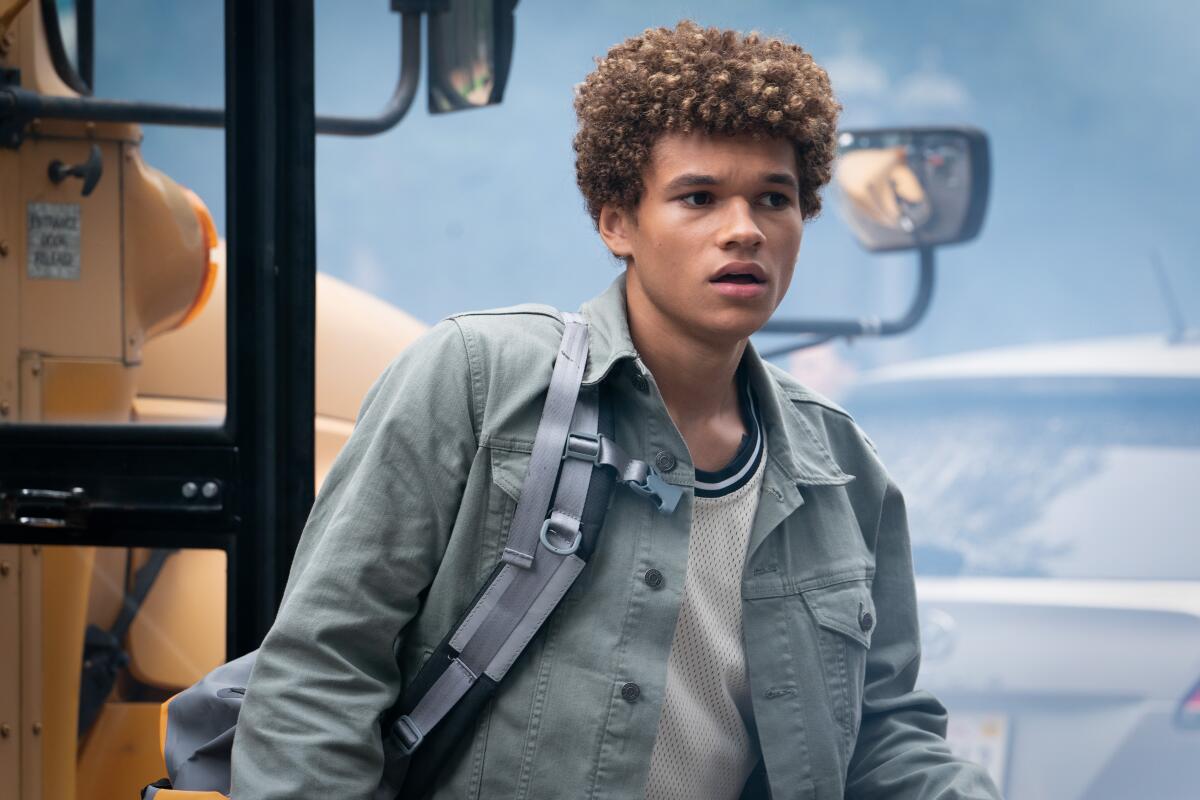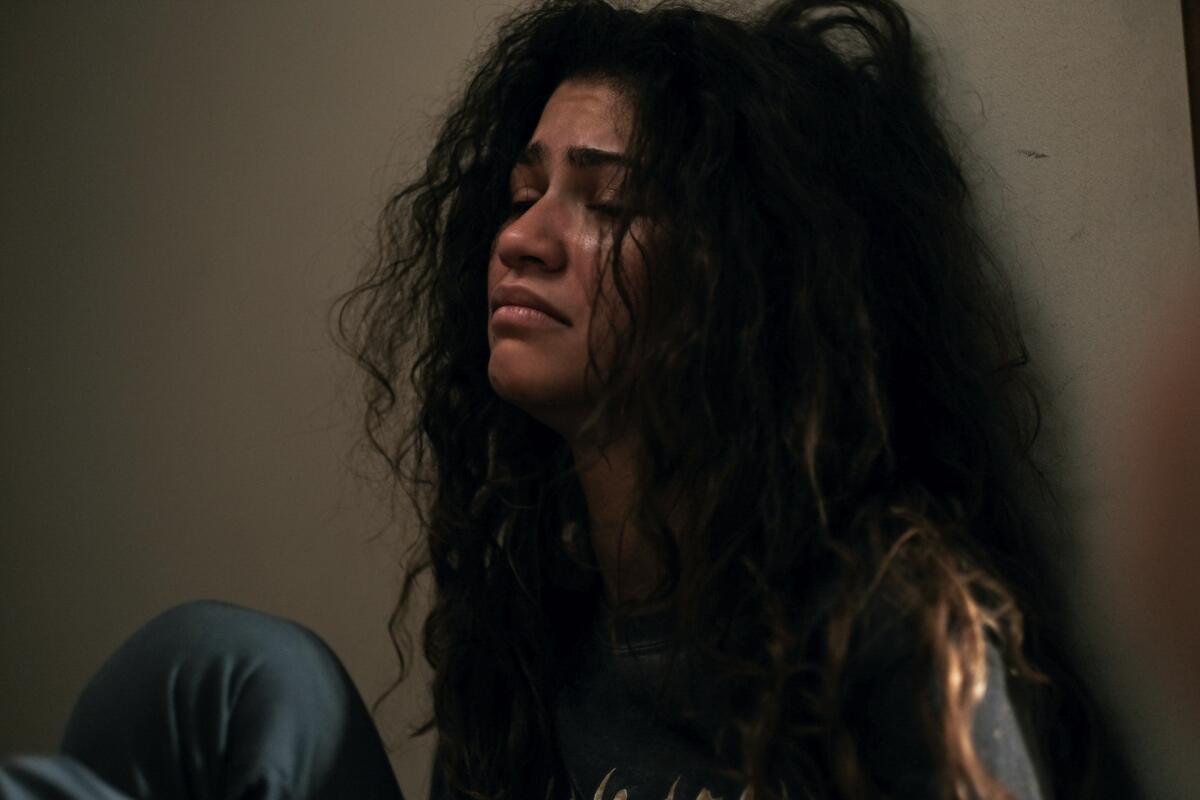Why young adult television suddenly feels different

In the first few minutes of the premiere episode of Netflix’s “Wednesday,” the dour title character draws a line in the sand — or, more accurately, the water: She dumps piranhas in a pool already teeming with bullying jocks. One, we learn later, loses a testicle.
This is not your traditional “teen” television.
“The audience is going to tune out or really be into it,” says Miles Millar, “Wednesday” co-creator and co-showrunner, with Alfred Gough (the pair also created “Smallville”). “It’s always about what would Wednesday do. Is the show true to her, or does it cave to the usual sensibilities — that she has to be ‘likable.’ We’ve heard that word so often in our careers.”
The idea that there are “usual sensibilities” in teen-based or “young adult” TV series has been a problem with the demographic-based genre for years. Series for young adults have spent decades evolving from the preachy “after-school special” model into primary — if not very risk-taking — fare on networks such as the WB, the CW and Freeform.
But today’s YA series content is a different animal (sometimes even flesh-eating), indeed. With such series as “Wednesday,” the reimagined “Bel-Air” (Peacock), “School Spirits” and “Wolf Pack” (both Paramount+), and “Cobra Kai” (Netflix), channels and showrunners are taking darker turns with multi-generational storytelling that features complex and nuanced characters and situations.

It might just be enough to get them taken seriously during award season.
“You can have entertainment that’s for ‘young people’ that also challenges them a bit more,” says Jon Hurwitz, who with Josh Heald and Hayden Schlossberg co-created and co-showrun the “Karate Kid” universe series “Cobra Kai.” “They can handle a bit more adult or darker themes.”
“Every episode now is something that could qualify as a ‘very special episode,’” says Jeff Davis, showrunner on “Wolf Pack” (and also creator of “Teen Wolf” and “Criminal Minds”) adding that the change is that problems aren’t usually wrapped up neatly at the end of one episode. “It used to be if you wanted to ‘do’ alcoholism, you’d bring in Tom Hanks to be the alcoholic brother [a reference to a 1984 ‘Family Ties’ episode] and then he leaves the show. That’s one reason I decided that one character in ‘Wolf Pack’ would have anxiety; that we wouldn’t ‘fix’ it in Episode 2. He’ll always have anxiety.”

That echoes what showrunner Carla Banks-Waddles is trying to do with “Bel-Air,” which revisited the idea of Will’s father rejecting him (something originally played out in a single 1994 “Fresh Prince of Bel-Air” episode) and spun it out over multiple seasons. “We can incorporate this kind of subject matter in ways that feel real and normalize these conversations as part of everyday living,” she says. “We can deal with absentee fathers over the course of several seasons — and do it in a deeper way.”
The stars and showrunners of “Bel-Air” say the dramatic re-imagining of the ‘90s show that launched Will Smith digs for truth beneath what were previously sitcom premises.
Many factors go into this new freedom for YA shows — streaming platform proliferation creating space for more niche audiences is one. But if there wasn’t an audience for this kind of storytelling, platforms wouldn’t matter, and creators recognize that the audience for YA shows, or shows featuring teens, has shifted.
“COVID was a game-changer for this generation,” says Oliver Goldstick, “School Spirits” showrunner, who has “High School Musical: The Series” and “Pretty Little Liars” credits on his résumé. “I can’t stress enough what it was like for a young person, isolated in their bedroom for years, to return to school with a mask. Social dynamics changed. There’s a willingness to embrace more adult and nihilistic issues that weren’t there before.”
In addition, many of today’s shows avoid showing their young leads in adult-free bubbles. In “Wednesday,” Gough says, they wanted to ensure that their stories were multi-generational and compelling to adults and teens. “Adult characters have compelling story lines as well; they’re not just window dressing,” Gough says.
“Or the butt of a joke,” Millar adds. “It’s designed so that everybody can see themselves, and find value, in the story.”
“Wolf Pack” creator Jeff Davis and consultant Courtney Knowles explain how the “Teen Wolf” follow-up series, premiering Thursday on Paramount+, signals an industry sea change.
But is this enough for these shows to earn Emmy attention? Some teen-focused series such as HBO’s “Euphoria” and Showtime’s “Yellowjackets” have been winners and nominees, yet they’re not often considered “young adult” TV. Quips Goldstick, “Do you know any kids that watch [‘Euphoria’]?”

Traditionally, teen TV goes overlooked by major awards. “There’s a children’s table, and I’ve bounced back and forth on it for years,” Goldstick continues. “Voters are usually older — you have to be in a certain place in your life and career to even be a voter — so it’s hard. Yet we’re dealing with universal issues on this show that are not juvenile.”
Regardless of whether this new batch of YA shows garner awards or nominations, it’s clear that series that want to be taken seriously aren’t likely to duck back into the days of “very special episodes,” or after-school morality tales. “We’re embracing themes in story lines that were once taboo,” “Wolf Pack’s” Davis says. “If you’re taking yourself seriously, maybe now the awards voters will, too. There’s a reality to these stories — a brutal honesty, and people respond to that. Not every show is about who’ll make the cheerleading squad.”
More to Read
From the Oscars to the Emmys.
Get the Envelope newsletter for exclusive awards season coverage, behind-the-scenes stories from the Envelope podcast and columnist Glenn Whipp’s must-read analysis.
You may occasionally receive promotional content from the Los Angeles Times.












